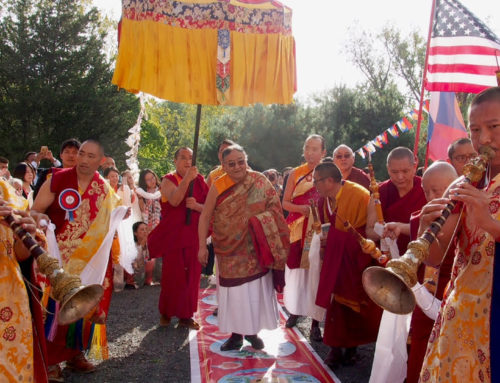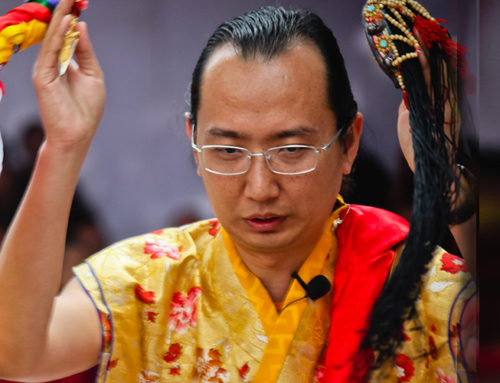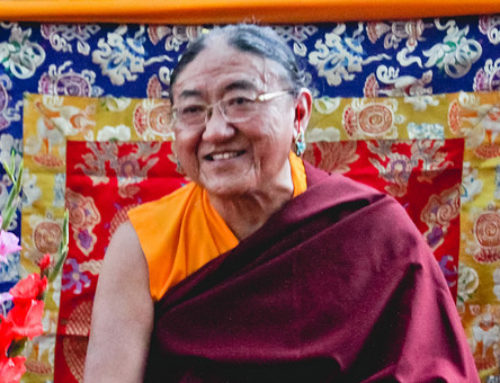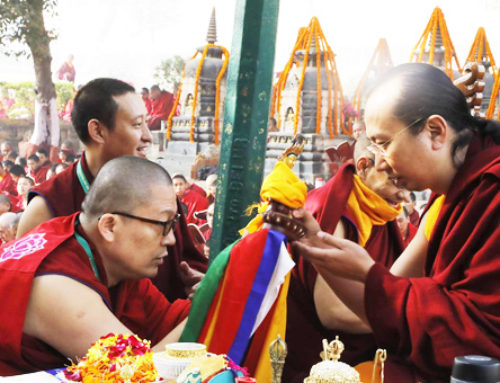 The term Monlam means the path of aspiration and is a form of prayer. Here, it refers to the tradition of Monlam Chenmo, the great prayer gathering that has historically been part of Tibetan New Year celebrations for more than 600 years. During a Monlam, the participants recite prayers with the aspiration to liberate all sentient beings from suffering and for all to achieve enlightenment.
The term Monlam means the path of aspiration and is a form of prayer. Here, it refers to the tradition of Monlam Chenmo, the great prayer gathering that has historically been part of Tibetan New Year celebrations for more than 600 years. During a Monlam, the participants recite prayers with the aspiration to liberate all sentient beings from suffering and for all to achieve enlightenment.
Over the last few decades, the Monlam tradition has been revived and greatly enriched. Multiple Monlams are now held at different times during the year in Tibet, India, Nepal, and Bhutan—each organized by one of the various Buddhist lineages or one of the large monasteries in those countries. Nowadays, Monlams are also held all over the world. In this way, the Monlam tradition is flourishing in a truly limitless and non-sectarian way.
In past years, the annual Sakya Monlam Chenmo has been held in Lumbini, Nepal. Lumbini, where Buddha Shakyamuni was born, is one of the four principal pilgrimage sites for Buddhists. During this occasion, thousands of practitioners, both lay and ordained, recite the prayer known as Samantabhadra’s Aspiration to Noble Deeds 100,000 times or more. Many other prayers are also recited, including the Manjushri Namasamgiti (The Litany of Names of Manjushri) and the Sixteen Arhat Ritual.
The first North American Sakya Monlam will be held at Tsechen Kunchab Ling (Temple of All-Encompassing Great Compassion) in Walden, New York, from September 21 to 24, 2017. And the 26th Sakya Monlam Chenmo will be held in Bodh Gaya, India—the holy place of the Buddha’s enlightenment—from December 26, 2017, to January 4, 2018.
Both events will be held under the auspices of His Holiness Kyabgon Gongma Trichen Rinpoche (the 41st Sakya Trizin) and His Holiness Kyabgon Gongma Trizin Rinpoche (the 42nd Sakya Trizin).
Image – Himalayan Art Resources Inc. / Rubin Museum of Art
May all beings have happiness and the cause of happiness.
May they be free from suffering and the cause of suffering.
May they never part from the happiness that knows no suffering.
May they dwell in equanimity, free from attachment and aversion to things near and far.
~ Four Immeasurables




